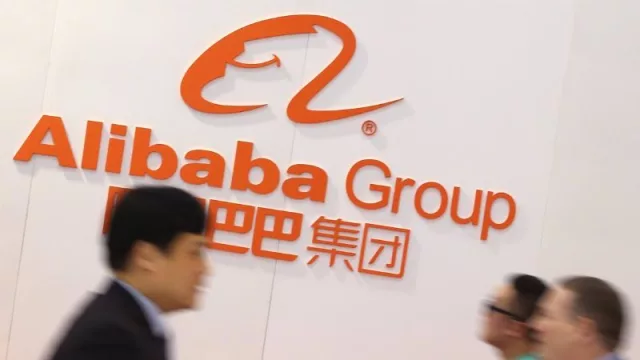TIP IN:
Alibaba, despite its monumental success, faces financial problems due to regulatory repression and increasing competition. Jack Ma, its founder, has expressed the need for internal reform.
The company has seen its market value decline, raising questions about its future in the global e-commerce landscape.
Current Challenges: Regulatory repression and competition.
Impact of Regulation
-
Since late 2020, the Chinese government has implemented a series of regulations that have drastically affected Alibaba. The crackdown on major tech companies has generated uncertainty in the market, leading to a 75% drop in the company's stock value since its historic peak. This phenomenon has highlighted the fragility of investor confidence in the Chinese business environment.
-
Alibaba's value has been under pressure due to various factors related to government regulation in China and the perception of the business climate in the country. Below are the key points that explain this situation:
Regulatory Repression:
Since late 2020, after Jack Ma criticized the Chinese regulatory system, the government launched a series of crackdowns on major tech companies, including Alibaba. These regulations generated uncertainty and distrust among investors, negatively impacting the company's stock value.
Jack Ma's Exit:
Jack Ma's decision to remain abroad for over a year following his criticism of the government was seen as an indicator of the hostile climate toward private entrepreneurs in China. His absence contributed to a lack of confidence in Alibaba's leadership and the future of the tech sector in general.
Changes in Ant Group Ownership:
Ma's relinquishment of control over Ant Group, Alibaba's financial technology subsidiary, was part of an effort to ease tensions with the government and demonstrate that the company was willing to adapt to new regulations. However, this was also interpreted as a weakening of the company's leadership.
Market Reaction:
Despite the tensions, Ma's return to China and the perception of a shift in the government's stance toward the private sector led to a slight increase in Alibaba's stock value. This suggests that investors are seeking signs of stability and governmental support.
Future Outlook:
Although Chinese authorities have indicated that they are looking for ways to support the private sector, trust among entrepreneurs and investors remains fragile. Jack Ma's return could be a step toward rebuilding that trust, but regulatory challenges and concerns about the business climate in China persist.
-
IG: @infonegociosmiami
IN summary:
-
The combination of regulatory repression, Jack Ma's prolonged absence, and changes in Ant Group's structure have contributed to Alibaba's loss of value. The situation is complex and largely depends on how the relationship between the Chinese government and the private sector evolves in the future.
China has faced several economic challenges in recent years, affecting its position as the world's second power. Some recent mistakes by the Chinese government, related to its statism approach, include:
Since 2020, following Jack Ma's criticisms of the regulatory system, the government implemented strict regulations that negatively impacted major tech companies, including Alibaba. This generated uncertainty in the markets and distrust among investors.
-
Hostile Climate Toward Entrepreneurs: Jack Ma's prolonged absence, as he remained abroad after criticizing the government, reflected a negative climate for private entrepreneurs. His decision to distance himself was seen as a sign that the business environment was unwelcoming, further deteriorating confidence in Alibaba and the tech sector.
Changes in Ant Group Ownership: Ma's relinquishment of control over Ant Group was an attempt to calm tensions with the government, but it was also interpreted as a weakening of leadership, affecting market perception regarding Alibaba's stability.
-
Although Jack Ma's return to China and an apparent shift in the government's stance toward the private sector caused a slight increase in Alibaba's stock value, confidence remains fragile. Investors remain cautious due to regulatory challenges.
Regarding Alibaba's loss of value, since regulations intensified, the company has seen a significant decrease in its market capitalization. For instance, in October 2020, Alibaba's market value was approximately $800 billion, while by the end of 2023, it had fallen to around $300 billion, representing a loss of over 70%. This shift reflects regulatory pressure and instability in the business climate in China.
Jack Ma's Vision: A Call for Reform
Jack Ma, the iconic founder of Alibaba, has acknowledged the need to reform the company. In an internal blog, he called on employees to return to the original mission and vision of the company. This statement highlights the internal confusion and lack of direction that Alibaba has faced in recent years.
Leadership Changes
The recent appointment of Eddie Yongming Wu as CEO reflects an attempt to restore the company's direction. Wu has taken a more active role in managing the core e-commerce operations, seeking to strengthen control over a conglomerate that has grown disproportionately. However, the challenge is significant, as the corporate culture and internal structures require a deep revision.
An opinion from years ago, which still resonates despite the repression of entrepreneurs, strategists, and journalists.
"The PCC has been suppressing private enterprises for many years, and sometimes its policies can bring down an entire industry," says Chinese law expert Teng Biao. "Many domestic and foreign entrepreneurs have lost confidence in that country and have diverted money intended for China to other destinations."
The Rise of Alibaba: A Giant in E-commerce
Since its founding in 1999, Alibaba has evolved into one of the most influential players in global e-commerce.
In 2022, the company handled transactions worth 1.1 trillion yuan (approximately $170 billion), surpassing competitors like eBay and Amazon.
This success has not only placed Alibaba at the center of the digital economy but has also generated considerable interest in its business model.
Alibaba's Strategy
Alibaba has built a diversified ecosystem that includes e-commerce, cloud services, and entertainment. Its platform connects millions of sellers and buyers, allowing it to capitalize on China's vast population and increasingly, the international market. However, this expansion has come with regulatory challenges that have begun to hinder its growth.
Emerging Competition
Competition has also increased, with rivals like PDD Holdings surpassing Alibaba in market capitalization. This shift has been a strong wake-up call for Alibaba, which now must reevaluate its strategy and adapt quickly to an evolving competitive landscape.
-
Opportunities for Alibaba: Innovation and Adaptation
Despite the obstacles, Alibaba has the capacity to reinvent itself. Investment in emerging technologies, such as artificial intelligence (AI), could be key to enhancing its competitiveness. Additionally, diversification into international markets may offer new sources of revenue and reduce dependence on the Chinese market.
Artificial Intelligence as a Growth Engine
AI can not only optimize Alibaba's internal operations but also enhance the customer experience. Implementing advanced algorithms to personalize offers and improve product recommendations could attract more consumers and increase sales.
-
Strategic Tips:
-
The future of Alibaba is uncertain, but its potential to grow and adapt to a changing environment is undeniable. The key will be how the company navigates regulatory repression and emerging competition.
2. The combination of oppressive regulation, a hostile environment towards entrepreneurs, and uncertainty about the future of the private sector has contributed to Alibaba's loss of value and to China's difficulty in consolidating its position as the leading economic power.
-
Infonegocios RED: 4.5 million Anglophone Latinos reading business news daily.
-
Sign Up for Free: Register and receive our newsletter by simply leaving your email and name here. (https://infonegocios.miami/suscribite-al-newsletter)
-
Contacts: [email protected] or [email protected]












Tu opinión enriquece este artículo: